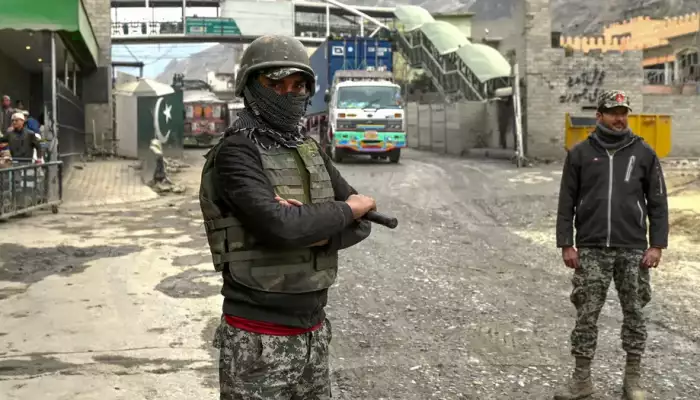
Fierce fighting erupted between the Pakistani military and Afghan Taliban forces over the weekend, marking the deadliest conflict between the neighbors since the Taliban returned to power in Kabul in 2021.
Both Pakistani officials and the Taliban regime in Afghanistan claim to have inflicted heavy losses on the opposing side.
The Taliban said on Sunday that they had killed 58 Pakistani soldiers in overnight border operations. Pakistan's army gave far lower casualty figures, saying 23 of its troops were killed. The Taliban also claimed to have captured 25 Pakistani army posts.
Pakistan's military claimed to have killed more than 200 Afghan fighters. The Taliban said only nine soldiers on its side were killed.
Claims from both sides could not be independently verified. Access to the border region remains heavily restricted.
Why are Pakistan and Afghan Taliban fighting?
Tensions between the countries, which were once allies, increased after Islamabad demanded that Kabul take action against the Tehreek-e-Taliban Pakistan (TTP), a separate group closely linked to the Afghan Taliban.
The TTP seeks to impose a hard-line interpretation of Islam, particularly on Pakistan's northwestern Khyber Pakhtunkhwa province, which borders Afghanistan.
According to Pakistan's government, the group operates from Afghan soil with impunity. The Afghan Taliban deny that.
TTP militants have stepped up attacks against Pakistani security forces in recent years.
A UN report this year found that the TTP "receive substantial logistical and operational support from the de facto authorities," referring to the Taliban government in Kabul.
More than 500 people, including 311 troops and 73 policemen, were killed in attacks from January through September 15, the AFP news agency reported, citing a Pakistan military spokesman.
Pakistan's government has also accused India of backing the Pakistani Taliban and other insurgent outfits in a bid to destabilize Pakistan. India denies such accusations and says Pakistan itself is involved in supporting secessionist militant groups operating in India-administered Kashmir.
Fragile cross-border situation
Last week, the Afghan Taliban accused Pakistan of bombing Kabul and a market in the country's east.
Pakistan's government did not confirm or deny the airstrikes. But Pakistan has repeatedly stressed the right to defend itself against what it said is a surging cross-border militancy.
Afghan Taliban forces said they launched attacks on Pakistani troops late Saturday as a "retaliation for airstrikes carried out by the Pakistani army on Kabul."
Michael Kugelman, a Washington-based South Asia analyst, told DW that the latest clashes between Pakistan and Afghanistan are "driven by Islamabad's failure to curb Afghanistan-based anti-Pakistan terrorism."
"Despite trying various strategies, including talks and limited military operations primarily within Pakistan, success has been elusive," Kugelman said. He added that "intensified counterterrorism operations" against targets in Afghanistan by Pakistan have now sparked a Taliban response, leading to the escalation.
Though the fighting seems to have largely ended for now, the situation remains fragile and tensions run deep.
The clashes also prompted a halt in border trade between the countries as Pakistan closed crossings along the 2,600-kilometer (1,600-mile) frontier.
The move stranded scores of loaded goods vehicles on either side, a Pakistani industry representative told the Reuters news agency.
Women and girls in Afghanistan see no hope for the future